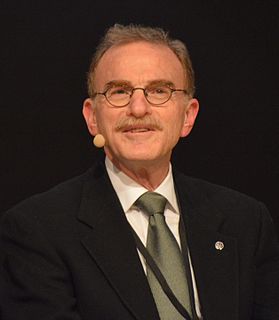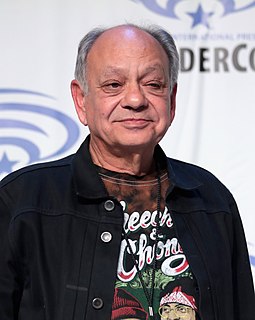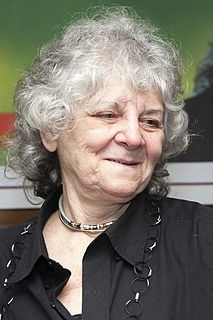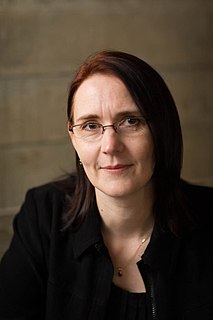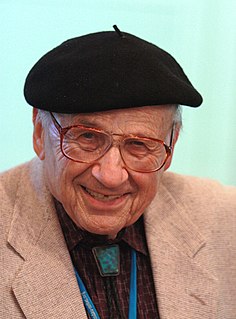A Quote by Randy Schekman
I am a scientist. Mine is a professional world that achieves great things for humanity.
Quote Topics
Related Quotes
If a given scientist had not made a given discovery, someone else would have done so a little later. Johann Mendel dies unknown after having discovered the laws of heredity: thirty-five years later, three men rediscover them. But the book that is not written will never be written. The premature death of a great scientist delays humanity; that of a great writer deprives it.
Who is a professional? A professional is someone who has a combination of competence, confidence and belief. A water diviner is a professional. A traditional midwife is a professional. A traditional bone setter is a professional. These are professionals all over the world. You find them in any inaccessible village around the world.
I had two competing ambitions when I was a child: I wanted to be a Scientist and Discover Great Things, but I also wanted to be an Author and Write Great Things. I've always tried to combine the analytical with the creative, to some extent or another, because I find it hard to do one without the other. I've worked as a tech journalist, social media consultant, and now am self-publishing fiction.
It is frequently the tragedy of the great artist for example Vincent Van Gogh, as it is of the great scientist, that he frightens the ordinary man. If he is more than a popular story-teller it may take humanity a generation to absorb and grow accustomed to the new geography with which the scientist or artist presents us. Even then, perhaps only the more imaginative and literate may accept him. Subconsciously the genius is feared as an image breaker; frequently he does not accept the opinions of the mass, or man's opinion of himself.
I am a man and alive. For this reason I am a novelist. And, being a novelist, I consider myself superior to the saint, te scientist, the philosopher, and the poet, who are all great masters of different bits of man alive, but never get the whole hog....Only in the novel are all things given full play.
I am very much a scientist, and so I naturally have thought about religion also through the eyes of a scientist. When I do that, I see religion not denominationally, but in a more, let us say, deistic sense. I have been influence in my thinking by the writing of Einstein who has made remarks to the effect that when he contemplated the world he sensed an underlying Force much greater than any human force. I feel very much the same. There is a sense of awe, a sense of reverence, and a sense of great mystery.
The books of the great scientists are gathering dust on the shelves of learned libraries. And rightly so. The scientist addresses an infinitesimal audience of fellow composers. His message is not devoid of universality but its universality is disembodied and anonymous. While the artist's communication is linked forever with its original form, that of the scientist is modified, amplified, fused with the ideas and results of others and melts into the stream of knowledge and ideas which forms our culture. The scientist has in common with the artist only this: that he can find no better retreat from the world than his work and also no stronger link with the world than his work.
